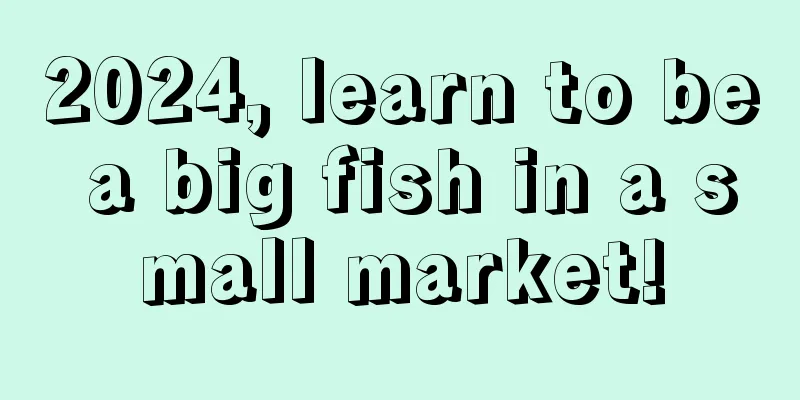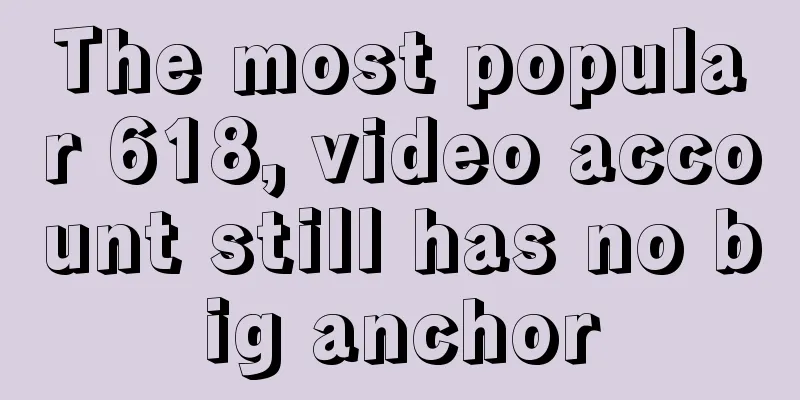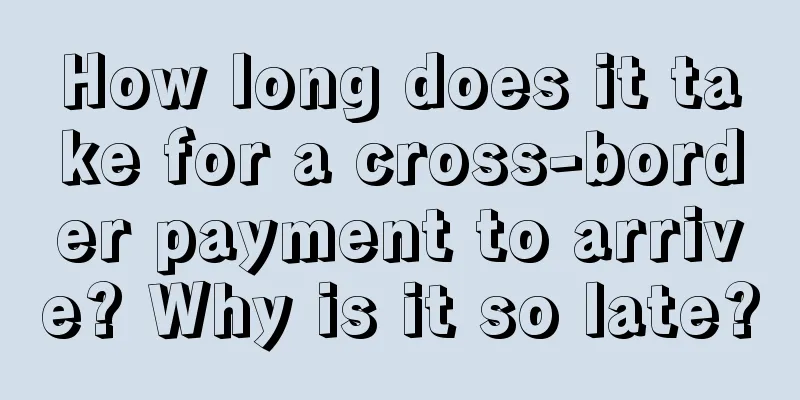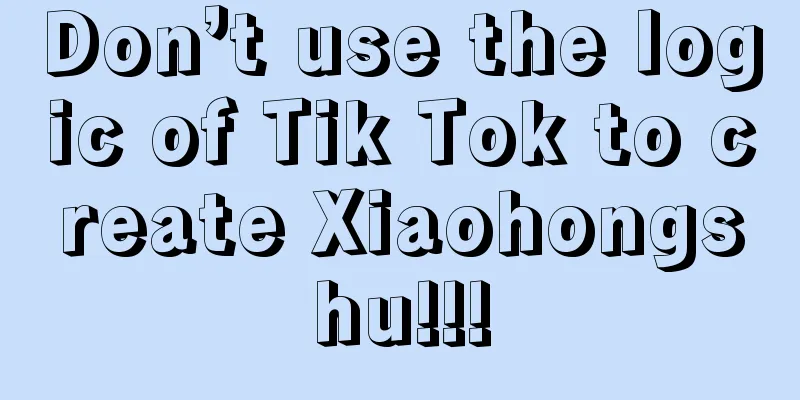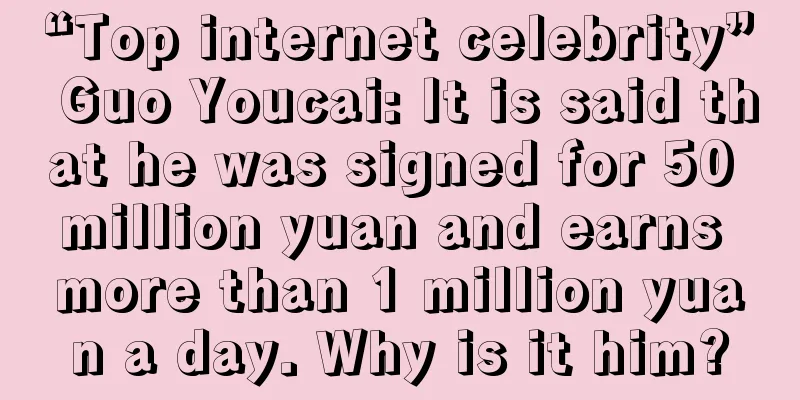Whoever plays with it will become popular! Has playing with memes become a hard currency for brand marketing?
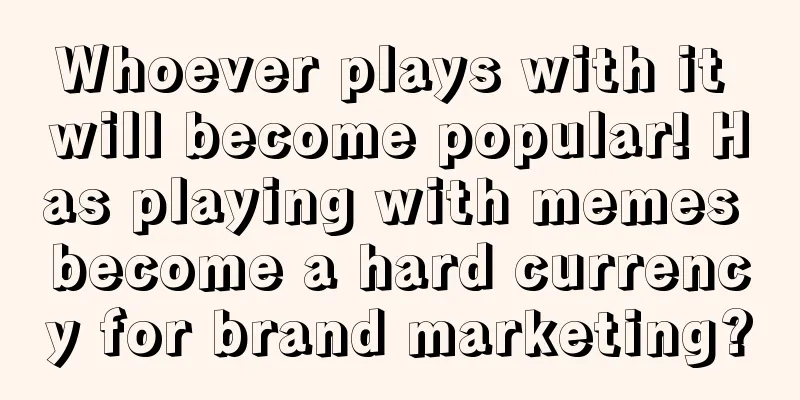
In this Internet age where everyone has a meme and everything can be discussed, meme marketing is like a clear stream. With its unique sense of humor and affinity, it has swept through the marketing classes of all brands and become hard currency in brand marketing. From the viral spread of Crazy Four Literature and Maimen Believers, to Yili's use of Lu Yu's image to play memes during the Paris Olympics, to UC Browser's recent humorous response to the old meme "go to UC to work", and the popularity of "beat Guangzhi" and "Guangzhi save me" game memes from "Black Myth: Wukong"... These imaginative, short and easy-to-understand memes are not only a collective release valve for the public's emotions, but also a mysterious code for the younger generation to show their individuality and find like-minded souls. New brand memes emerge one after another, and old memes can also be played in new ways, which makes people wonder if these brands are secretly memorizing memes under the covers every night? 01 What exactly are brands playing when they use meme marketing?First, play with the current hot internet memes. In the current fragmented media ecosystem, meme marketing has become a key strategy for brands to build consensus and achieve cross-circle communication. Every time a brand incorporates a popular meme, it increases the opportunity to shape a "common memory", thus leaving a deep brand impression in the minds of users. Black Myth: Wukong is undoubtedly one of the hottest phenomenal topics this year, and its hot memes "Beat Guangzhi" and "Guangzhi save me" have become popular on social networks. JD.com, which caught this game meme, responded quickly and invited talk show actor He Guangzhi to live broadcast "Beat Guangzhi" to stage a meme-based sales show. With the return of talk show variety shows, many popular internet memes have been born from the comedians' famous quotes. Among them, Zhao Xiaohui's sentence "I have developed PPTSD about PPT" expressed the thoughts of many netizens. The day before yesterday, Tongyi AI officially announced that Zhao Xiaohui became the product recommendation officer, and launched the Tongyi PPT creation function, aiming to help every "Xiaohui" get rid of "PPTSD" in the workplace. JD 3C Digital has set up a "Crazy Work Badge" wall at Beijing Chaoyangmen subway station, accurately restoring the mental state of office workers. The phrase "Don't work here unless necessary. I wish you would feel less office-like wherever you are" resonates with every worker passing by. Behind these creative ideas of hot memes, we not only see the humor of the brand, but also feel the pulse of social culture. Hot marketing not only shapes the memory of the brand, but also invisibly weaves a common emotional bond in society, making every marketing a bridge that connects people's hearts and delivers value. Second, if there are no jokes to exploit, brands can also create their own jokes. A brand should not only be able to play with memes and follow trends, but also be able to create memes and lead trends. By creating memes themselves, brands can not only proactively shape their own image, but also leave a deep impression on consumers. On the one hand, the brand’s transformation and renovation of old memes can evoke emotional resonance in collective memory and make old memes more interesting. For example, Luckin Coffee innovated based on puns and launched a series of "city puns" and "university puns", leading people to check in at various city and campus stores online; iFLYTEK played a modern version of an ancient fable in its new product advertisement, adapting the traditional fable "Mencius' Mother Moved Three Times" to create a new pun for the new product, "Mencius' Mother's New Choice for Moving Four Times". On the other hand, the new memes created by brands are a vivid reflection of the bold individuality and creativity of contemporary young people, and can quickly become hot topics on social media. For example, Youdao Dictionary dug into the story behind the college entrance examination listening comprehension and found the "man behind the listening comprehension", which quickly became popular on the Internet; when the Paris Olympic Games officially announced the color scheme of the venues, some sharp-eyed netizens discovered that the color scheme coincided with that of Master Sha, so Yili invited Liu Dagang, who played Monk Sha, to be Yili's Paris fashion ambassador. 02 What else do brands seek when they use memes? In order to get closer to the context of young consumers, brands have tried their best to cater to the preferences of young people. Brand leaders are no longer satisfied with the traditional advertising methods, but keep up with the trend, use freestyle online buzzwords, and even become self-deprecating jokes, so that consumers will be attracted to their products without realizing it. First, meme marketing can bring brands and consumers closer together. In the current communication context, brands cannot just talk to themselves and conduct one-way communication, but must interact with consumers to enhance attention. Self-deprecation and actively "self-deprecating" to show weakness are alternative magic weapons for brands to attract consumers. When a brand's attitude towards being ridiculed completes a 180-degree turn from "see you in court" to "see you in jokes", the brand can often quickly capture the attention of consumers and dispel the negative views of some consumers. For example, UC Browser recently released a short video in response to the old joke of "Come to UC to work tomorrow", which is an excellent example of brand self-deprecation. In the past, because UC headlines were long filled with some exaggerated or mysterious headlines, "Come to UC to work tomorrow" was frequently used by netizens to ridicule the clickbait on the Internet. Taking advantage of the brand's 20th anniversary, UC officials personally came out to play with memes and launched a funny short film titled "Just now! UC's official response". In an increasingly outrageous way, it listed the seven major symptoms of UC netizens, such as congenital rebelliousness, a head full of memes, title artists, and sudden domineering bosses, turning UC's shortcomings that have been ridiculed into unique and interesting charms. Looking further back, Starbucks’ official Weibo account recruiting for a “Starbucks Atmosphere Group”, Jiaduobao’s apology, Buick launching a nail clipper with the same logo as its car, and Kindle’s advertising slogan “Cover with Kindle, the noodles taste better” are all the result of brands reconciling with themselves through self-deprecation. This kind of self-deprecating marketing is actually a high-level "whitewashing" method that is well versed in psychology. In traditional PR scripts, brands are often eager to get rid of negative images, but this eagerness to distance themselves from others is often counterproductive and easily arouses the disgust of netizens, leaving the impression of "lacking sincerity and evading responsibility." However, the self-deprecation of brands is to face their own shortcomings with a humble and humorous attitude. Successful self-deprecating PR can not only cleverly dispel negative public opinion, but also transform a passive situation into an active attack, and then launch a set of marketing combination punches. Therefore, in the face of intentional or unintentional ridicule from netizens, instead of sending a lawyer's letter of warning in a condescending manner, it is better for brands to take advantage of the situation and play with the memes themselves. While catching this wave of "wealth", it can also narrow the distance between the brand and consumers and demonstrate the brand's wisdom and emotional intelligence. Of course, brand self-deprecation is not really exposing its own shortcomings, but more like a clever makeup technique to weaken the disadvantages and magnify the advantages. Only when it is done properly can it make people laugh and praise. Otherwise, "self-deprecation" becomes "suicide". Second, meme marketing can leverage high popularity with low cost. Compared with high-cost, large-scale event marketing and TVC, meme marketing only needs to play a good meme to make a brand or product quickly popular. Recently, many brands have cooperated with crosstalk actors and talk show actors to shoot some low-cost but interesting commercials. For example, Apple recently cooperated with crosstalk actor Yue Yunpeng to launch a personal information security blockbuster, which used the method of supporting and amusing to interpret the pain points of personal information security, and increased the exposure and discussion of the product in a low-cost way; MINI cooperated with Yu Qian to shoot a very interesting short film, which cleverly used "erhua" in the short film, which made the audience comment "the erhua here is too interesting". Third, meme marketing can help old brands maintain a young brand image and enable new consumer brands to quickly stand out in the market. For old brands, marketing with memes is like grafting new branches onto an old tree. It not only breaks those outdated stereotypes, but also shows the brand's ageless heart and full of creative juice. For example, Jiangzhong Compound Grass Coral Lozenges made a big move on this year's Teachers' Day, launching a short film to pay tribute to those post-00 teachers who are not following the beaten path, and used a small red flower to create a brand-specific super symbol, aiming to protect the new "voice" generation. For new consumer brands that are not so well-known, they need to use innovative marketing strategies to attract consumers' attention. Meme marketing is an effective way to increase brand awareness. After the brainwashing advertising song "Wai Wai Alien, Electric Electrolyte" of Alien Electrolyte Water went viral, the brand insisted on inserting this slogan into the variety shows it sponsored, and even invited Chen Jianbin to sing the single "Wai Wai Alien", which allowed the brand to achieve sales of 3.5 billion yuan in just two years. 03 Brands should use memes in moderation and avoid turning jokes into pain pointsThe key to the success of brand meme marketing lies in the accurate grasp of the psychology of young consumers, but it should be noted that "memes" are only one part of brand content play. Brands should be moderate when playing with memes. If they "go too far", the marketing meme may turn into a public relations crisis. First, avoid being clever, as not all popularity can be taken advantage of. For example, the "packaging satirizing Japan incident" of Xiangpiaopiao in the first half of this year attracted the attention of netizens. At first, a Xiangpiaopiao employee put a warning about nuclear wastewater on the packaging, and the company publicly praised the employee for doing a good job. Overnight, Xiangpiaopiao became the "light of domestic products." However, netizens soon discovered that the products purchased offline did not have the slogans, and questioned whether Xiangpiaopiao employees were posing for photos, which was purely exploiting the public's patriotic feelings. The public opinion immediately changed, and Xiangpiaopiao's sales plummeted 100 times. In addition, when choosing a trending topic, brands should ensure that it fits with the brand image and target audience, and avoid excessive pursuit of hot topics while ignoring the brand’s long-term image and values. Second, brands should focus on the timeliness of using memes and update their marketing strategies in a timely manner. "Memes without popularity are like a pile of loose sand, which will scatter after two steps without any wind." Take the case during this year's Paris Olympics as an example. Yili's commercial quickly became popular due to its unique creativity. The similarity between Lu Yu and the Paris Olympics logo became a hot topic on social media. But in fact, it’s not only Luyu who has a similar face to the Paris logo, but also Xiaoyou, the brand virtual spokesperson of Yousugur. However, when Yousuanru tried to seize this hot spot after seeing Yili's success, its marketing strategy did not achieve the expected success. This was mainly because Yousuanru seemed a little passive under Yili's advertising offensive and failed to adjust its strategy in time to highlight its cooperative relationship with Luyu, thus missing the best opportunity. Therefore, when brands use memes, they not only need to keep up with the latest trends, but also need to stay proactive and unique in a highly competitive market to ensure that their marketing campaigns stand out. Only by acting quickly, innovatively, and strategically can brands truly harness the timeliness of memes and transform them into an effective tool to enhance their brand image and capture consumer attention. However, when brands are chasing hot topics, they cannot simply imitate others for the sake of speed. They need to dig deeper into the cultural significance and emotional resonance behind the hot topics to create more lasting and profound brand stories. That way, even if the meme fades, the brand can continue to connect with consumers through its unique narrative and value proposition, keeping the brand vibrant and appealing. Third, after a brand successfully uses a hot meme to break out of its circle, it should think about how to continue the long-tail effect and transform the meme into a long-term asset of the brand. Turning a popular meme into a series of memes is an effective strategy. Take the example of the character played by actor Wang Xingyue who became popular for his magical repetitive lines "Haoshi Haoshi delicious delicious" in the TV series "Ning'an Rumeng". The Haoshi brand seized this opportunity and not only used this slogan on social media, but also promoted it widely through various channels such as product packaging, TV commercials, outdoor advertising, short videos, etc. It also invited internet celebrities and stars to participate in the challenge and created a series of derivative memes around it. In short, driven by consumers' growing demand for novel and interesting content, meme marketing, with its unique humor, affinity and interactive qualities, is destined to play an important role in future market competition. Brands need to be more sensitive in understanding consumer psychology and traffic patterns, accurately grasp consumer needs and preferences, establish emotional connections with consumers, resonate with consumers, and combine memes with brand image and values to form unique brand characteristics and achieve in-depth dialogue with target groups. Only in this way can brands stand out in the fierce market competition and win the favor of consumers. Text | JadeSky |
<<: New product launch, a must-answer question in the marketing circle in 2024
>>: Xiaohongshu anchor business tips: Sell emotions and sell goods at the same time
Recommend
50 days after Huawei Mate 60 Pro went on sale: 4,000 people waited in the live broadcast room to get a bargain, but it was still hard to get one
Huawei became a hot search when it launched the Ma...
Integration of brand and effect: How to achieve both popularity and sales volume, and gain both exposure and sales?
In brand marketing, brand-effect integration is ve...
How do cross-border e-commerce companies protect original images? What are the rules?
When you are working on a cross-border e-commerce ...
What personality types are suitable for being a data analyst?
This is a series of data analysis job interviews. ...
Xiaohongshu’s traffic rules have changed dramatically, and new rules for business notes have been launched
The traffic rules of Xiaohongshu platform have und...
As AI creations become increasingly popular and digital humans and virtual anchors emerge, how can guilds and organizations keep up with the trend?
The development of the AI industry has penetrate...
What are the three types of Amazon ads?
Merchants who open stores on Amazon basically adve...
A wave of copywriting standing in the atmosphere
The author of this article shares British Airways’...
In the new 10 yuan era of tea drinks, it is not only about price
The price war has spread to the tea beverage marke...
Behind Xiaohongshu's monthly e-commerce sales of 3 million, I have summarized a set of methods
With the rise of Xiaohongshu e-commerce, small and...
Xiaohongshu in a commercial dilemma: betting on the founder, becoming popular in less than 10 days
Xiaohongshu is facing an unprecedented business di...
There is a solution to the chaos of excessive filters in influencer marketing!
A proposal recently submitted by France requires i...
I have been working in data for ten years, and this is the first time I have seen such a great data analysis method
This article deeply explores the application of da...
New Year Goods Festival Observation: Can’t give gifts during the New Year anymore?
As the 2025 Spring Festival approaches, major e-co...
Since when has online shopping become a matter of morals?
When shopping online, you often see notes in the c...
